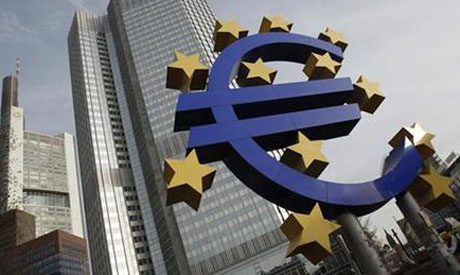
MENA region is particularly vulnerable to Europe's crisis, says a new report (Photo: Reuters)
Europe's financial crisis poses a threat to Middle East economies almost as serious as that from the region's ongoing political upheavals, the World Bank said on Wednesday.
The bank's Global Economic Prospects survey, published on 18 January, forecasts growth of 2.3 per cent for the Middle East and North Africa (MENA) region in 2012 -- a figure it predicts will climb to 3.2 per cent the following year.
The MENA region will bear the brunt of a slowdown in European and global growth, with the oil and manufacturing industries alike taking serious hits, says the report.
In its outlook for Europe, the bank said the continent was probably already in recession, elsewhere adding that high-income economies would grow just 1.4 per cent in 2012.
Oil exporting countries are likely to be adversely affected by weaker oil prices, while those importing oil such as Egypt and Tunisia will pay the price of their close ties to debt-stranded European economies.
If Europe cuts back on MENA exports, this could prove troublesome for the region, claims the World Bank.
"Both oil-importing economies and the developing oil exporters (Iran excluded) have strong export links with the European Union, notably Syria, with 80 per cent of fuel shipments destined for the EU-25, and Algeria, with substantial shipments to the EU and the United States," the report reads.
The EU is Egypt's main trading partner and makes up 33.1 per cent of Egypt's trade volume. It is the main receiver of Egyptian exports and imports, receiving around a third of the country's total of each.
Egypt was ranked the EU's 28th biggest trade partner in 2010.
Other potential problems stemming from the MENA region's ties to the EU include drops in tourism arrivals and migrant remittances, and -- to a lesser degree -- financing.
A glimmer of optimism comes in the World Bank's forecast for next year. By 2013, the report claims, a revival of foreign investment will help the region's growth edge up to 3.2 per cent.
'Traditional revenue streams' such as tourism and migrant remittances are expected to normalise with the passing of civil unrest.
The report adds that oil exporters will have a better chance of withstanding the brunt of a crisis if oil prices remain at their current high levels.
Total hydrocarbon revenues for the region increased by $200 billion in 2011. Should oil prices decline sharply, however, some oil-producing governments will likely be forced to cut spending.
The forecasts assume the non-occurrence of internal conflicts, already a moot point for countries like Syria.
The report suggests aid provided from richer countries in the Gulf Cooperation Council (GCC), such as Saudi Arabia and Qatar, could cushion the financial hardships expected in 2012.
"Official aid from the GCC and others is restoring a good portion of (and in some cases more than 100 per cent of) lost liquidity to several economies in the region – and helping some of the transitioning economies to meet fiscal shortfalls," it says.
Short link: